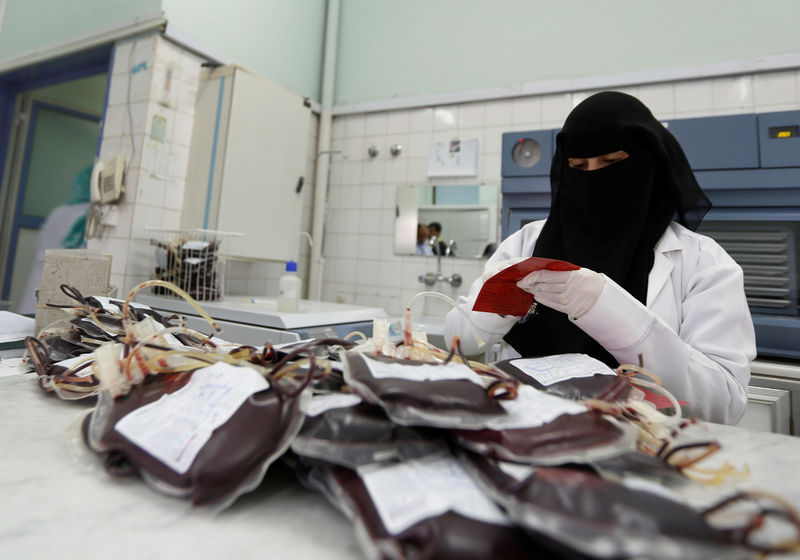SANAA (Reuters) - Yemen's national blood bank may be forced to close due to a lack of money after an international medical charity decided to end two years of support, the director of the blood bank said.
But the U.N. World Health Organization (WHO) said it was trying to help by sending further supplies.
Patients suffering diseases including thalassaemia, cancer and kidney failures, as well as victims of a two-year civil war in which more than 10,000 people have been killed, would be affected if the bank closed, officials said.
More than three million people have been displaced in Yemen's conflict and much of the country's infrastructure including its health system has been destroyed.
"If the centre stops, a catastrophe will hit the whole country," said Munir al-Zubaidi, a spokesman for the bank said.
The country of 27 million is also facing a cholera epidemic that has affected some 600,000 people and killed nearly 2,000.
The National Blood Transfusion Centre director, Dr. Adnan al-Hakimi, said the crisis emerged after French medical charity Medecins Sans Frontieres (MSF) informed the bank it was suspending its aid after more than two years of work.
"The centre suffers from a complete shortage of supplies, including medical solutions, blood bags and medical needs," Hakimi said.
"We have issued an appeal to all civil society groups, businessmen and anyone interested in charity work to save the lives of those who are ill, injured or wounded so the centre would not stop," he added.
An MSF spokeswoman said the charity had handed over its support for the blood bank to the WHO.
MSF has been doing extensive work in Yemen since the war began in March 2015, operating hospitals and clinics and providing medical supplies to various state-run facilities.
In a report in January, MSF said it had provided regular blood testing kits to the blood bank since September 2015.
The WHO confirmed the bank was at risk of closing.

"WHO is looking into ways to support the National Blood Transfusion Centre," said Tarik Jasarevic, a WHO spokesman. "Supplies were ordered but have not reached Yemen as of now," he added without elaborating.
(Additional reprting by Stephanie Nebehay in Geneva; Writing by Sami Aboudi and Tom Finn; Editing by Matthew Mpoke Bigg)